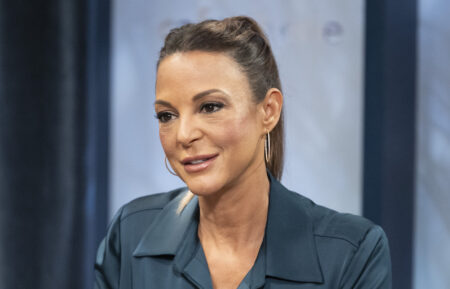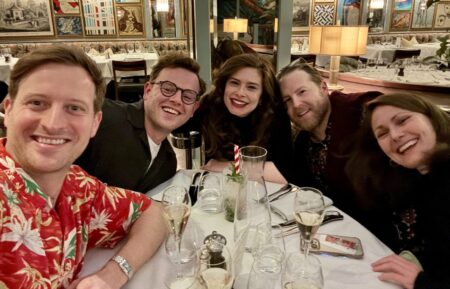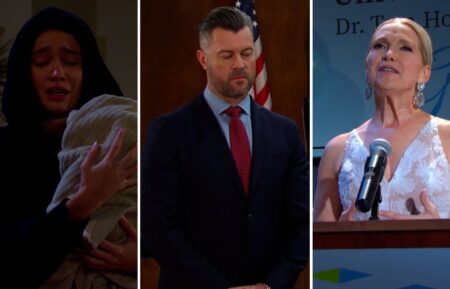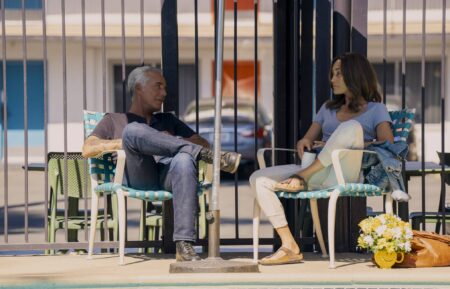Ask Matt: Major Deaths on ‘Major Crimes,’ ‘Designated Survivor,’ ‘Blacklist,’ and More
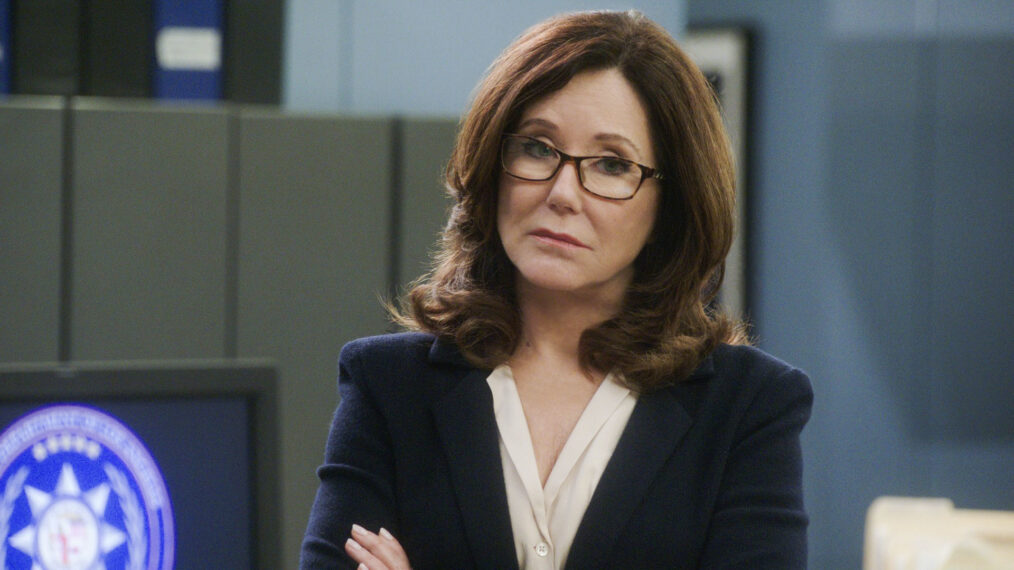
Welcome to the Q&A with TV critic (also known to some TV fans as their “TV therapist”) Matt Roush, who’ll address whatever you love, loathe, are confused or frustrated or thrilled by in today’s vast TV landscape. One caution: This is a spoiler-free zone, so we won’t be addressing upcoming storylines here unless it’s already common knowledge. Please send your questions and comments to [email protected] (or use the form at the end of the column) and follow me on Twitter. Look for Ask Matt columns on most Tuesdays and Fridays.
Happy New Year! Or, should I say: Happier New Year? Since I signed off for the holidays, so many TV fatalities to contend with in my overstuffed email-bag of mourning. That issue will dominate this first column of 2018. I promise to move on to other, and let’s hope more uplifting, matters soon (if they’d all just quit killing off characters). And obviously, spoilers await if you missed these shows in December.
It’s a (Major) Crime, I’m Telling You!
Question: What on earth were the show runner and writers of Major Crimes thinking? They knew this was the final season, and this is their way of saying “goodbye” to loyal fans who have followed this show since the beginning of The Closer? The last four episodes have been the worst of the whole series. They are so torturous to watch that I don’t even care if I see the final episode or not. It’s bad enough that they killed off a major character who started out as an antagonist but gradually won us over. This whole search for the serial killer has been dragged out beyond the point of boredom to total incredulity. I have absolutely no interest in this mysterious techno-geek who is spying on them. I FF through all the computer-mastermind scenes until I get back to the main characters. I didn’t think it was possible to have a worse final season than Dexter or Roseanne, but compared to Major Crimes, they were masterpieces! If this is the show runner’s way of making sure nobody petitions to have the show come back, it’s working. Instead of dreading the final episode, I can’t wait for it all to just be over!! — Sue Ellen
Matt Roush: While I did see some feedback praising Mary McDonnell’s performance as Sharon Raydor through her untimely death, and the show has certainly not minimized the impact of the tragedy, this response typifies the tone of the outrage and annoyance felt by many viewers who saw this as a cheap and unnecessary stunt. (As “Errandgirl” wrote in despair: “Why would Mary McDonnell be killed off Major Crimes with four more episodes to go? Why would we want to watch them?”) Merry Christmas, everybody! It got me reflecting that even with the much darker and richer crime drama NYPD Blue back in the day, that show wisely chose not to kill off its beleaguered protagonist Andy Sipowicz, instead ending the show with a sense that life, as imperfect as it is, and the job goes on. Read on for more reaction.
Question: Can’t wait to see your take on the death of Sharon Raydor on Major Crimes. Lots of talk about it—is it a ruse to catch Stroh? Some say it was tantamount to suicide, which a devout Catholic would not do. Others say it was James Duff’s way of getting back at TNT for canceling the show. Others point out that Mary McDonnell dies in every role she’s had. Whatever. I for one will miss it. I wish Kyra Sedgwick had been able to come back as Brenda just once. Flynn, Provenza, Buzz, Tao and Julio were like family. — Tom
Matt Roush: My mail also reflected this sort of deep attachment to the show and its cast—understandable given that, if you include The Closer, viewers have spent something like 13 seasons and more than 200 episodes with many of these characters. In interviews, James Duff insists that Sharon is most sincerely dead, and a miracle resurrection is not part of the Stroh endgame. (I guess we’ll know for sure when the series finale airs on Tuesday.) But it’s fair to interpret that the death of the boss lady is a metaphorical response on the part of the writers to the show’s own termination.
And Let’s Not Forget Tom Keen (RIP!)
Question: I am disappointed by (spoiler alert) the deaths of Sharon Raydor on Major Crimes and of Tom on The Blacklist. Sharon’s seems particularly cruel to fans, coming so close to the show’s finale and the possibility of happiness with Andy. I’m not even sure that I want to watch the remaining episodes. Major Crimes is no Breaking Bad, where Walter’s death fit their narrative perfectly, nor even Angel, which still has, for me, TV’s most perfect death: Wesley’s. As for Tom’s death on The Blacklist, do TPTB think that this will improve ratings? In theory I understand that his death will drive Liz to the dark side, if you will. The problem with that is that Liz has never been why someone watches: they watch for Red, or for Tom, or in my case, for Aram, but not for Liz. Your thoughts? —Heather
Matt Roush: An interesting point in comparing Major Crimes to Breaking Bad, and how Walter’s arc led more satisfyingly to his inevitable demise. Though in most ways Major Crimes is a far more conventional procedural, there is an argument to be made that Sharon Raydor dying with her boots on (metaphorically, again) doing what she loved most (her job) was in its own way a noble death. And if this was the intent all along, I do give the writers some credit in not saving this to the last episode, which would have been not only an incredible downer but a rank cliché. At least the show is able to dramatize the grieving process and give the characters some semblance of closure, though for some it’s apparently too little too late and too depressing.
Regarding Tom on The Blacklist, I’ll point you toward our exit interview with Ryan Eggold and the producers, who remind us that Tom lasted a lot longer on the show than anyone expected. Whether this makes Liz more or less interesting to Blacklist viewers is hard to say, but it’s always dangerous to overgeneralize that no one is watching Blacklist for her arc. I’m sure people have all kinds of reasons for watching a show like Blacklist.
A Designated Non-Survivor
Question: Whatever possessed the creators of Designated Survivor to kill off the First Lady in the midseason finale? Coming on the heels of all President Kirkman’s other dilemmas in office, why needlessly introduce a whole new calamity that can only color all that follows, in addition to eliminating one of the few rays of sunshine in an otherwise troubled narrative? Can you explain this to me and all others who watch this show every week? – Steven
Matt Roush: Next to killing off the lead in Major Crimes, this was undoubtedly the second least popular fatality on TV last month. As I suggested in answering this question in TV Guide Magazine, the twist appears to have been prompted by Natascha McElhone (who played Alex Kirkman) joining a high-profile Hulu series, The First, set on Mars and premiering later this year. The producers seem to feel this provides an opportunity to present Kiefer Sutherland’s President Kirkman with new challenges to survive on the family front. But the randomness of this tragedy didn’t sit well with most of my respondents, as you’ll see.
Question: In Designated Survivor, once again we get the tired trope of the car in which the character was riding being hit broadside by a vehicle that is seen at the last split-second through the side windows. I’ve even come to expect it when the camera POV is to one side or the other in a moving vehicle. And again we have the next-of-kin being notified by phone, so we can see the dramatic reaction in a hallway, instead of the less dramatic but more realistic action of notifying them to “come to the hospital, your wife was in an accident” and taking them in a private room to tell them. I respect Kiefer Sutherland so much for his 24 work that I can’t believe he lets this stuff get filmed. And again we have a “let’s kill off the wife so the husband can have a dramatic crisis” storyline. Come on, writers—you should be better that this. — Tom F
Matt Roush: These points came up often in the feedback. Donna P of Chapel Hill, N.C., wrote in to lament the number of T-bone car accidents including How to Get Away With Murder and the even more infamous Nashville death of Rayna Jaymes. She added: “It seems such a shame to do away with a First Lady who was confident, intelligent, independent and a loving wife and mother. She was a great role model for what a First Lady could be. I am sorely disappointed.” Bob agreed the T-bone collision “was lazy on the writers’ part, but even more glaring: THE PRESIDENT WOULD NEVER RECEIVE NEWS LIKE THIS, ON HIS OWN, BY PHONE! An appropriate ending, if she had to die: Have Mike or the Chief of Staff come around the corner with that “LOOK.” President falls to his knees, etc. but handle him with humanity, writers!”
And Felicia added this curious observation: “I think if they wanted to get rid of the First Lady, they should have found her to have some ties to the plot that is the premise of the series. I’ve been suspicious of her since the first season anyway, and the resolution of that story was underwhelming.”
Agreed on that last point about how the show bungled the terrorist storyline, but I’ll have to part company when it comes to making Alex a bad guy. That would leave even a worse aftertaste than the current situation.
Open Season on Women?
Question: I was just wondering why the networks were killing off the women. First, it’s CBS killing women (Kevin Can Wait, Blue Bloods), and now other networks are doing it. ABC killed off First Lady Alex Kirkman on Designated Survivor. Then it’s TNT killing off Sharon Raydor on Major Crimes. What the heck is going on? Why all the women and not men? — Deirdre
Matt Roush: Well, there is Tom Keen on The Blacklist, but he seems to be the exception this season. And let’s see how House of Cards goes about writing off Kevin Spacey’s Frank Underwood in favor of Robin Wright as Claire—though it shouldn’t take allegations of sexual misconduct to get some parity on this issue. Maybe the issue here is that writers should think hard about providing characters more graceful exits, so we don’t have to dwell so often on TV’s rising body count.
In Praise of Lies, If Not a Sequel
Question: I wrote you a few months ago decrying Hollywood’s poor portrayal of therapists. I just caught up on HBO’s Big Little Lies and was delighted to see an excellent psychotherapy portrayal. The therapist was direct and undaunted by her squirming client’s denial, evasion and attacks, and held her focus with non-reactivity and compassion. And the fact that the actress was Robin Weigert (iconic portrayer of Calamity Jane in Deadwood) was a plus. So thanks, Hollywood, for showing some good therapy. And this miniseries was excellent with wonderful strong women performances. — Jason
Matt Roush: Which is why the series is once again a front-runner at the Golden Globes this weekend and the SAG Awards later this month. What I appreciated about Big Little Lies when reviewing it last winter is that, beneath its gossipy surface and irresistible hook of who among those parents is going to die, there’s a compelling and even psychologically acute story of sexual and domestic abuse being told. The therapy scenes were powerful and memorable, and seriously, how good is Robin Weigert in everything?
Question: The issue of how Big Little Lies is categorized—first it’s a limited series, now it’s continuing—made me wonder if I really want to see it go on. And maybe I’m in the minority in this. But it seemed like a very self-contained story, and like the miniseries of old based on big books. Why not stop there with a very satisfying story wrapped up well? I know shows like The Leftovers and The Handmaid’s Tale have done very well moving beyond the source material novels. What are your thoughts? — ML
Matt Roush: I agree with you up to a point. The original series was very satisfying (although I thought the book by Liane Moriarty did a better job of explaining the final act) and I can’t say I was left with a feeling of wanting more. But if Moriarty, adapter/producer David E. Kelley and this marvelous ensemble can put together another story as gripping as the first season, who am I to prejudge? I don’t see this as an open-ended franchise, though. It had better have an awfully strong hook, as Lies did, to justify doing this.
The People Have Spoken
Question: The E! channel acquired the People’s Choice Awards last year and have now announced they won’t air the 2018 show until next November! While never one of the top awards shows, the PCAs was the one show that allowed fans to voice who they thought were the best entertainers. I think E!, with this decision, will kill any interest in the show. What are your thoughts? — Greg
Matt Roush: It appears E! made the scheduling change to get the People’s Choice Awards out of the glut of awards season—typically, it would be airing sometime in the next week or so—and for that, I thank them. Which is not my typical response to most anything E! does. Do we really need another awards show this winter? By being so focused on entertainment and self-promotion, E! may even give the special a bigger build-up than it was given on CBS, and it’s less likely to get lost in the Globes-Oscars hubbub. That said, it’s possible that by moving to cable, the ceremony will be seen as being more marginalized, but it’s also possible that the new platform will allow the show to feature more nominees and winners, which I seem to recall being a criticism some fans had about the CBS telecast over the years. As usual when it comes to TV, you win some, you lose some.
That’s all for now. We’ll pick up the conversation again soon. Thanks as always for reading, and remember that I can’t do this without your participation, so please keep sending questions and comments about TV to [email protected] or shoot me a line on Twitter (@TVGMMattRoush), and you can also submit questions via the handy form below.
From TV Guide Magazine
How 'Countdown' Recruited Jensen Ackles to Go Full 'Die Hard'
Countdown boss Derek Haas talks creating the character around Ackles, and the cast teases the “Avengers”-like team of the crime thriller. Read the story now on TV Insider.






